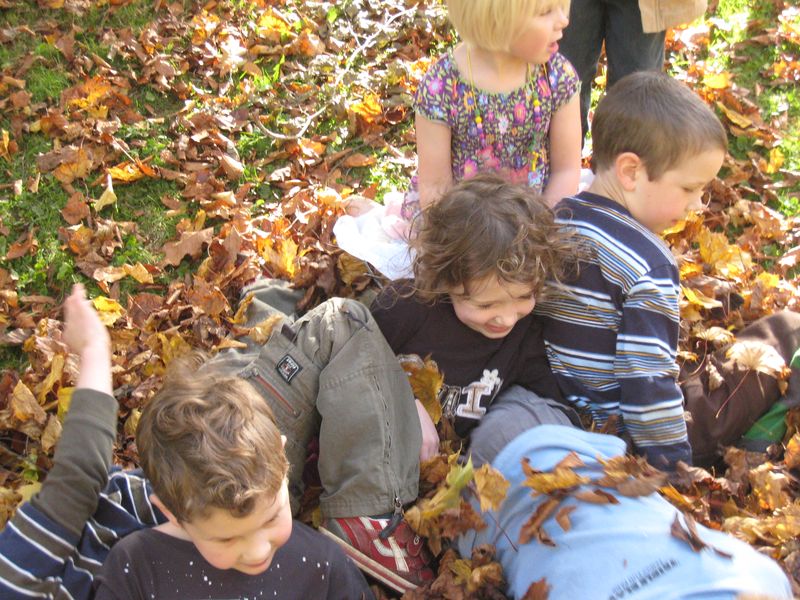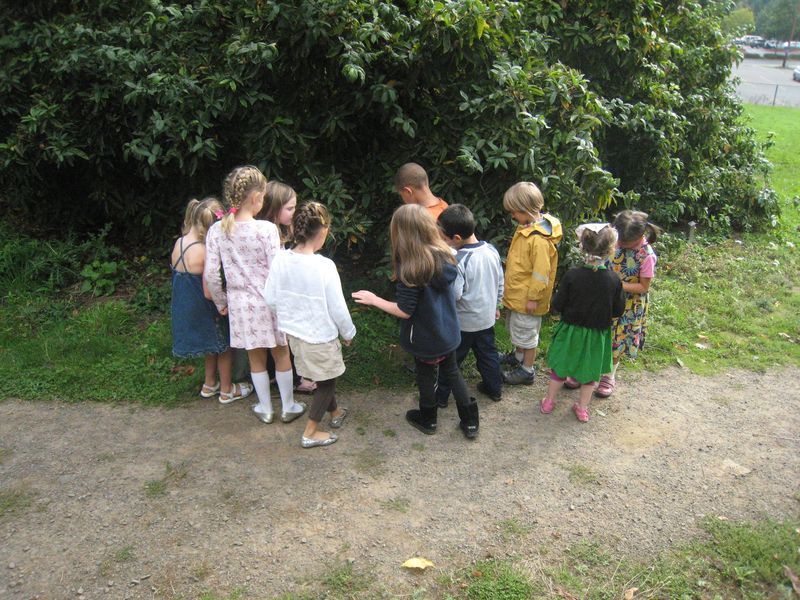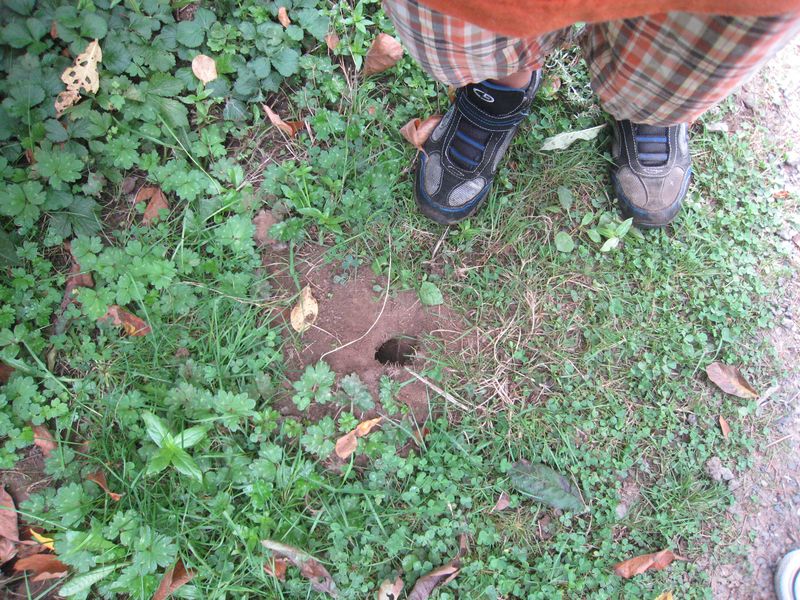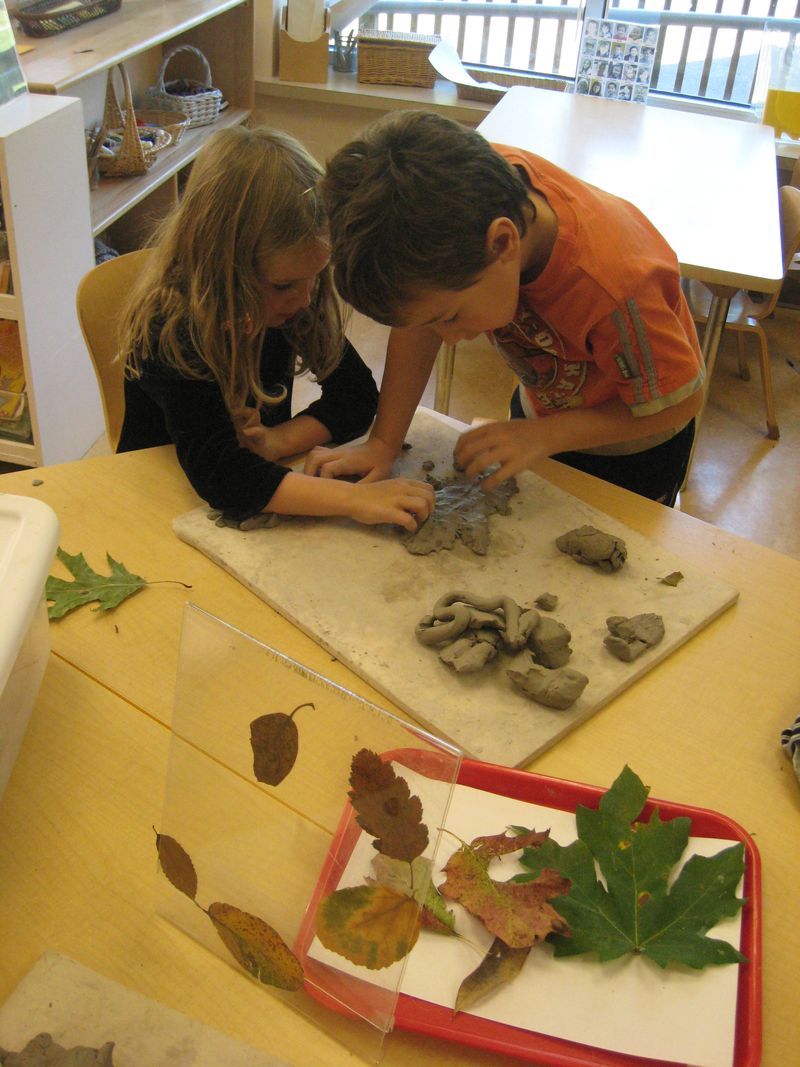Project Work Projections

Opal 1's big idea this year is our connections to the natural world. Over the years the teachers at Opal have noticed that this seems to be a big idea that comes up again and again with this particular age group. And like the quote downstairs in the hallway by David Sobel says, "If we want children to flourish, to become truly empowered, then let us allow them to love the earth, before we ask them to save it."
Every other year Opal 1 will explore this same big idea, but the ways that we get to the understandings we expect children to have will be different. Because curriculum can never be the same– just as a conversation can never be repeated– you have a point you want to make, but in conversation, the turns your partner takes effect the choices you make about how you get there. The same is true for curriculum planning. As the members that make up the groups of children in Opal 1 and their interests change from year to year, so will the choices we as teachers make. This year is no different and we have already begun to see particular interests held that we haven't explored in the past.
We began the year searching for the interests, wonderings, passions and ideas that this particular group of children would hold in relation to this big idea. We were lucky enough this year to have scheduled into part of our week a Naturalist's Workshop, where we spend time outside in the natural world exploring this big idea in different ways. Our intentions in the beginning of the year were to notice what the children were paying attention to specifically when they were outside. From the beginning we noticed a curiosity in the changes that were happening (the colder weather, the leaves changing colors) and also an interest in the holes in the ground that the children continued to see all over the arboretum. There was lots digging and noticing and wondering about all those holes. The children imagined they led to tunnels which maybe even led to homes. They wondered, “Who lived in them?” In the beginning of the year many of the children were calling those holes, snake holes. What a surprise when we were out hiking one day and a mouse ran up the trail in front of us and into one of those holes! We had to reconsider our ideas of what might be living in those holes.
We wondered how this interest in the world underground would connect to our big ideas this year. As we pay attention to what the children pay attention to, we begin to define and redefine our own intentions for the year. This year within this big idea of our connections to the natural world, it felt like we needed to refine even further. One big goal we have at Opal school throughout all the grades is to pay close attention to and nurture the social and emotional intelligences of children. Social emotional learning is an integral part of every single part of our day. We can't focus on the academic work without the consideration and time spent focusing on the social and emotional work as well. You cannot have one without the other. The social needs and learning that takes place at this age has so much to do with identifying and recognizing the big feelings or emotions that are guaranteed to come up when a group of 25 children spend so much time together. After getting to know this particular group of children, paying attention to their interests and needs, and considering this big goal of nurturing the social emotional intelligences of children and the big idea of the connections to the natural world, we did refine our big ideas even further. This year we intend to have the children explore the idea of change and the ways that emotions and feelings are connected to those changes.
As we move forward thinking about the natural world, change, and the emotions and feelings naturally attached to that change, I am reminded of a quote by David Orr where he shares what he envisions education could be. He says, "D.H. Lawrence once said that 'Water is H2O, hydrogen two parts, oxygen one, but there is also a third thing that makes it water and nobody knows what it is.' It is magic, the kind that can only be found in nature, life, and human possibilities once we are open to them. The kind of education I have in mind takes young people out of the classroom to encounter the mystery of the third thing. In that encounter they discover what Rachel Carson once called the 'sense of wonder.' And that is the start of a real education."




